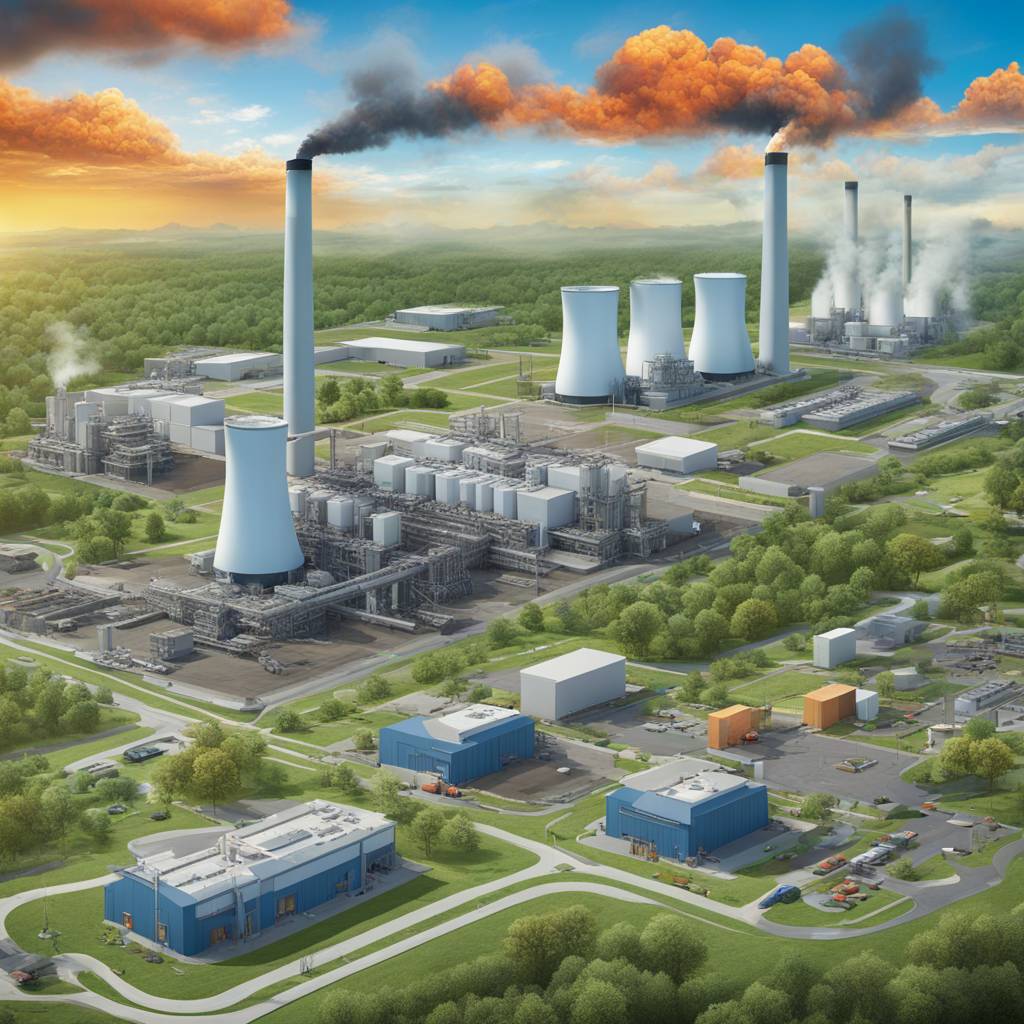The Biden administration has announced plans to allocate up to $6 billion in funding for new technologies aimed at reducing carbon dioxide emissions from heavy industries such as steel, cement, chemicals, and aluminum. Energy Secretary Jennifer Granholm stated that they would partially fund 33 projects in 20 states to test various methods for curbing emissions from industrial plants, marking the largest industrial decarbonization investment in American history. Some examples of funded projects include an aluminum casting plant in West Virginia that will run on hydrogen fuels, electric boilers and heat pumps installation in food manufacturing facilities, and the replacement of coal-consuming blast furnaces with electric furnaces in a steel manufacturing plant in Ohio.
Heavy industries are significant contributors to global warming, accounting for around one-quarter of all emissions in the United States. Many of these industries rely on burning coal or natural gas to produce the heat necessary for various processes. While there are technologies available that can help reduce emissions, such as industrial heat pumps or thermal batteries, clean hydrogen for steel production, or carbon capture and storage for cement making, these solutions are often expensive and still in early stages of development. Policymakers have been cautious about imposing stringent regulations on industrial emissions due to concerns of job losses and factories moving to countries with less strict environmental rules.
The Biden administration has decided to focus on funding new technologies in the hope that they will eventually become cheaper and more widely adopted. Additionally, federal agencies are planning to purchase steel, cement, asphalt, and glass made using cleaner processes to create a market for low-carbon industrial materials. The projects being funded by the Energy Department’s Industrial Demonstrations Program under the bipartisan infrastructure law and Inflation Reduction Act include efforts to develop cleaner cement production methods, thermal energy storage technologies to provide steady heat for industrial processes using intermittent renewable energy, and other innovative solutions aimed at decarbonizing the industrial sector.
One of the funded projects is Sublime Systems, a startup working on cleaner ways to produce cement without high heat or carbon dioxide emissions. Traditionally, cement manufacturers rely on burning coal or gas to reach very high temperatures for the transformation of limestone into lime, releasing carbon dioxide in the process. Sublime’s technology, powered by electricity, eliminates the need for high heat and CO2 emissions. The Energy Department’s funding will help the company build its first commercial plant in Massachusetts. Other projects exploring thermal energy storage technologies are also being considered for funding, highlighting the potential diversity of solutions available for industrial decarbonization.
The goal of these projects is not only to reduce emissions from individual factories but also to demonstrate new technologies that can be scaled up rapidly and set a new standard for clean manufacturing in the United States and globally. While the projects funded by the Biden administration may not make a significant impact on total U.S. emissions, they are crucial in advancing technologies that can eventually lead to broader decarbonization efforts in the industrial sector. This investment in innovation and cleaner industrial processes aligns with the administration’s efforts to combat climate change and transition towards a more sustainable, low-carbon economy.








